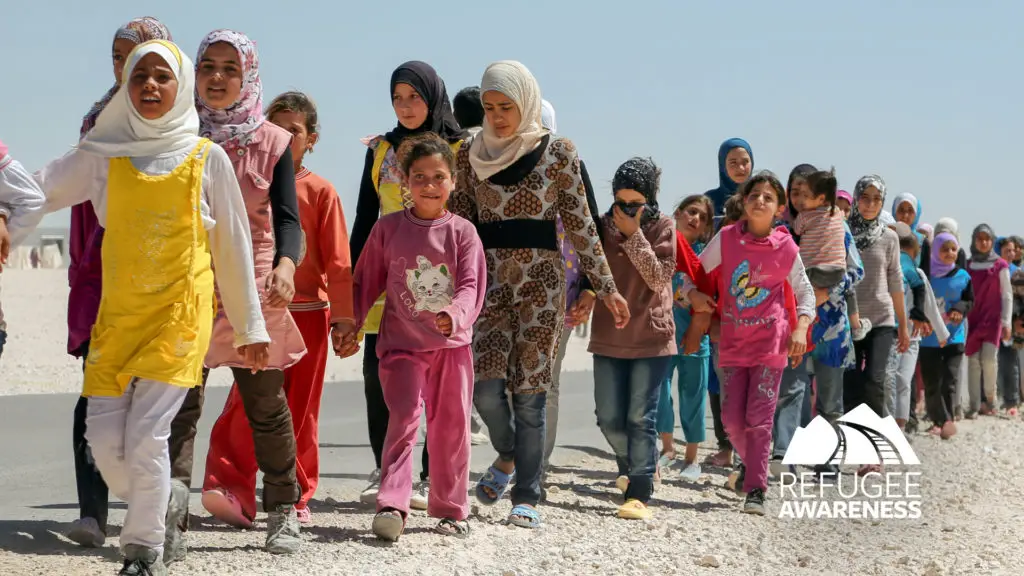*Name changed
Refugees take more than one journey. The more obvious journey is the one they take away from instability and threats of violence and death in search of stability and safety. Another journey is one of trauma, and for many women, it includes domestic and sexual abuse.
William and Darlene King* serve among refugee populations in Europe. Darlene helps women navigate these dark corridors from trauma to healing. Darlene partners with other Christian organizations to provide for the mental health needs of refugees by hosting trauma healing seminars and offering counseling.
She recalls one woman named Estere* who came to one of the trauma healing seminars.
At first, Estere was downcast and didn’t make eye contact or participate. By the end of the second day, however, Estere was smiling, talking and contributing.
During the second round of the seminar, Estere shared she was walking through a difficult season. During a session, leaders taught about grief and domestic abuse. Women began crying at the end of the session – the content hit close to home.
“We could not walk out the door like this,” Darlene said, “so I said, ‘OK, everybody stand up. Let’s all say one way that we have been strong.’”
“I have hope that things will get better,” Estere said.
For Estere and the other women, life situations aren’t necessarily going to change, Darlene said. They will most likely face seasons of suffering and trials for a long time, and hope can be as elusive as permanent resettlement.
“If you have hope that you’ll feel differently, or you have hope that you’ll find healing, then you can get through it,” Darlene said. “And so, knowing what [Estere] had been through and hearing her say that she was strong by having hope was a real encouragement.”
All the women who attend the seminars have gone through trauma on their journey to Europe, and it is common for trauma survivors to have a disconnect in their brain that is a coping mechanism, Darlene said. The women need mental health education and to learn healthy coping skills.
“They also need Jesus,” Darlene said. “We’re sharing the Gospel, we’re sharing the mental health education, we’re hopefully providing therapy opportunities and exercise classes and the things that can help people work through their depression and anxiety and at the same time point them toward Christ.”
The women use a seminar program developed by the American Bible Society’s Trauma Healing Institute.
There are 11 core lessons in the seminar, which dive into how to help rape victims or women who have experienced domestic abuse, attempted suicide or developed a drug addiction.
The lessons have been translated, adapted and geared toward Muslims. One of the sessions in the seminar focuses on shame and guilt. The curriculum provides stories about women who have experienced similar things in similar circumstances.
“When people can talk about someone else’s story, they can process their own feelings without admitting that it’s their own story also,” Darlene said.
Referring to the example stories allows the women to avoid the shame of sharing their trauma.
The seminar also delves into grief and how to process what they’ve experienced.
“I think it’s really important for refugees to talk about what grief is. It’s not just losing a person because, for refugees, they have lost so many things,” Darlene said.
Darlene and the other Christian workers launched a website with videos from their seminars for women who cannot attend or who live in distant camps.
The women Darlene’s team has met recently struggle with varying degrees of depression and anxiety. Some of the women cut themselves, and others have attempted suicide multiple times.
Darlene’s friend Liana* invited several friends to the same trauma seminar Estere attended. Liana is a Christian and is from a refugee population who are not as devout in their Muslim faith. The Lord developed a heart in both Darlene and Liana for reaching a refugee population who are more devout in their faith.
After the seminar, Liana called Darlene crying and told her it was difficult hearing the women share their stories. Liana implored Darlene to let her know when she did any more outreach with this people group.
Liana invited women from this more devout people group over to her home and shared the Gospel.
“That was really beautiful,” Darlene said of Liana sharing her faith through their shared pain.
Though the journeys to a permanent home and to emotional healing are often long roads, the refugees have hope and the promise of an eternal home and healing that comes through Jesus’ death and resurrection.
This article was written by Caroline Anderson*, a writer for IMB. It was published on baptistpress.com.

